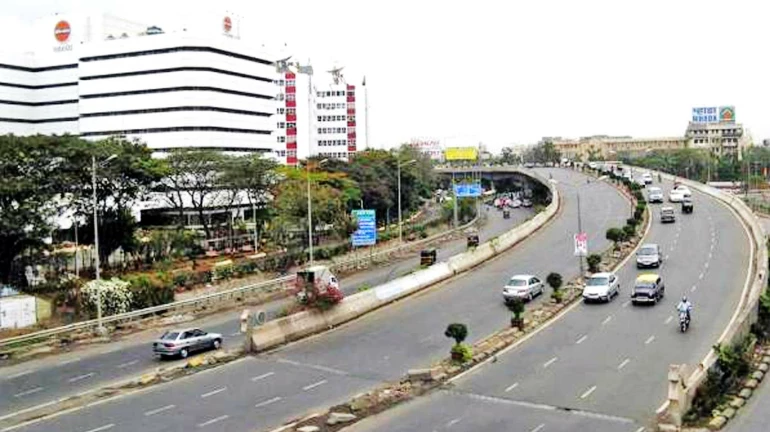
Other than being finance capital and the city of dreams Mumbai is known as the city never sleeps. The reason possibly could be as it also popular for its traffic.
The region of Mumbai’s Bandra-Kurla Complex (BKC) is congested almost 24X7. This may change as a comprehensive transport plan (CTP) has been set by the Mumbai Metropolitan Region Development Authority (MMRDA) to assist alleviate the problems faced by drivers, pedestrians, and those who use public transport.
BKC is situated between Bandra Railway Station and Kurla Railway Station. It is accessible through Western Express Highway (WEH) via Kalanagar Junction and BKC road. There is a BKC-Chunabhatti connector to Eastern Express Highway (EEH) as well.MMRDA stated it wants to bring in a consultant who will make a detailed mobility plan, which will be integrated with technology solutions to resolve existing problems. It will also address future concerns which may impact the access-egress at BKC via all modes.
The official said, “After the terminus of the bullet train and the International Financial and Services Centre (IFSC) will come up, the traffic situation is anticipated to worsen.”For instance, there is a backlog at the entry of BKC from the Kalanagar side entrance, for which the consultant would help develop solutions, according to metropolitan commissioner Sanjay Mukherjee. "Additionally, it will aid in presenting strategies for streamlining BEST bus services. The strategy will guarantee that BKC is also pedestrian-friendly," he said.
Greenhouse Gas Emission
More than 6 lakh people travel daily via BKC. The MMRDA has stated that ‘the plan will be made with a goal of reduction of greenhouse gas emissions in BKC area.’ It will also enable the government agency to seek carbon credits.Presently, if one travels from BKC to Kurla station on a BEST Bus, it takes 60 minutes to reach the station.
An MMRDA official said, "To promote public transit, the consultant may examine the viability of dedicated bus lanes."Metro Lines Connection
BKC will be connected to the upcoming metro lines 2B (DN Nagar to Mandale) and lane 3 (Colaba-Bandra-Seepz). Mukherjee said, “The consultant will check the feasibility of providing direct access from offices of business hubs to these Metro stations. This will be done because crowds should not spill on the streets during morning and evening peak hours.”The origin-destination study will be carried out by the consultant to determine travel patterns, from which the traffic plan will be created. Safety will be prioritized as consultants examine and gather relevant information on blackspots. To ensure that there are no accident-prone places, MMRDA will build a thorough design of the blackspots with the necessary precautions.
Several junctions are linked with the BKC road. Those areas will be studied by the consultants and they will then recommend making the route signal-free by providing flyovers or subways, wherever feasible, to ensure quicker movement.Along with conducting pedestrian counts, the consultants will track crossing activity along each corridor in the study area and make recommendations for ways to discourage jaywalking.
To facilitate improved access and departure, MMRDA also built a flyover as part of the Santacruz-Chembur Link Road and Kalanagar Junction Improvement Project.




